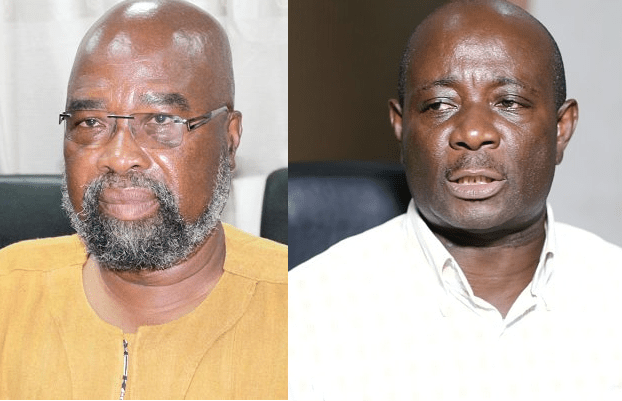Restructure social intervention programmes; Four political parties tell govt
Four political parties have called on the government to turn its attention to the implementation of the various social intervention programmes and remove the bottlenecks that are making the programmes unable to achieve their full benefits.
The parties—the Convention People’s Party (CPP), the Liberal Party of Ghana (LPG), the Great Consolidated Popular Party (GCPP) and United Front Party (UFP)— explained that although the social intervention programmes, including the Livelihood Empowerment against Poverty (LEAP), the Ghana School Feeding Programme (GSFP), the National Health Insurance Scheme (NHIS), the Capitation Grant, Free School Uniform, Free Exercise Books and the labour-intensive public works, were good programmes, their implementation had become problematic.
Sharing their views on whether or not the government’s social intervention programmes were paying off, the parties, in separate interviews with the Daily Graphic, stressed the need for a proper restructuring of the various programmes to meet current demands.
Stressing particularly the implementation of the LEAP programme, the CPP, LPG and GCPP called on the government to, as a matter of urgency, increase the monthly allowance given to the beneficiaries of the programme.
They contended that the current allowance given to LEAP beneficiaries was woefully inadequate considering the geographical location of the target group, coupled with the high cost of living in the country.
The government, in September 2015, announced an increase in the monthly allowance for LEAP beneficiaries.
Under the new package, the amount for one-member households which received GH¢48.00 was increased to GH¢64.00 per payment cycle while that of two-member households was increased to GH¢72 from GH¢60.
Three-member households will get GH¢88 instead of GH¢72.00 and four or more member households will be paid GH¢106.00 instead of the previous GH¢90.00.
The parties said more reforms needed to be introduced to ensure that beneficiaries of those programmes, majority being the poor, were able to utilise them in a way that would improve their livelihoods.
LPG
The Founder and Leader of the LPG, Mr Percival Kofi Akpaloo, said although the establishment of the social intervention programmes was “fantastic, a lot needs to be done to realise their full benefits”.
He said the level of poverty in the country was too high and that any social intervention programme must seek to position the poor to create their own wealth for future sustainability.
“That is why the LPG, when voted into power, will create a job fund for people to borrow money to establish their own businesses,” Mr Akpaloo said.
On the LEAP allowance, he said the money given to the beneficiaries was inadequate and that the government must endeavour to increase it.
CPP
The acting National Chairman of the CPP, Hajia Hamdatu Ibrahim, said the party believed in the ideals of establishing the various social intervention programmes but “the implementation of some of the programmes must be properly structured”.
She mentioned the School Feeding Programme as one of the programmes that needed special attention considering the many issues that had come up as a result of its implementation.
Hajia Ibrahim said the reports that the caterers were not doing the right thing and that the quality of food given to the children was not up to standard needed to be checked.
She said those executing the School Feeding Programme must be scrutinised and monitored in such a way that saboteurs would be uncovered and punished.

GCPP
The leader of the GCPP, Dr Henry Herbert Lartey, said the party supported any intervention that would help improve the standard of living of the people.
However, he said those interventions must be properly structured in a way that people would not have to depend on it for a very long time.
“I believe that social intervention programmes must be structured in such a way that people will be well positioned to cater for themselves in the future. We must plan it so that in future, the beneficiaries will be able to create their own successes,” Dr Lartey said.
He, therefore, commended the government for its effort to improve the well-being of the poor through its social intervention programmes, adding that without it, criminality would surge.
UFP
The Founder of the UFP, Mr Akwasi Addai Odike, said the establishment of the social intervention programmes “is an attempt to institutionalise poverty and make Ghanaians become content with being poor”.
“As a party, we think the social intervention programmes are sluggish because we need to create an environment where people can make their own money and live a good life. This is where the government has failed the people,” he said.
Mr Odike said it was the responsibility of the government to create an environment where Ghanaians would be in a position to help themselves, indicating that the current system where the poor depended on interventions had made people embrace poverty.


